21st Century Sleep: How Technology Affects Us and Our Slumber
by | Last Updated
Technology is taking up a huge part of our lives.
It’s everywhere around us: at work, on the streets, and at home.
Interestingly enough, modern-day technology is a rather contradictory phenomenon. It helps us in so many ways but can also mess with our sleep, which, consequently, can mess up our health.
Today, we are going to see how much influence technology and our favorite devices have on our sleep quality. We will also learn how to sleep better and protect our slumber from the 21st century gadgets.
Let’s dive right in!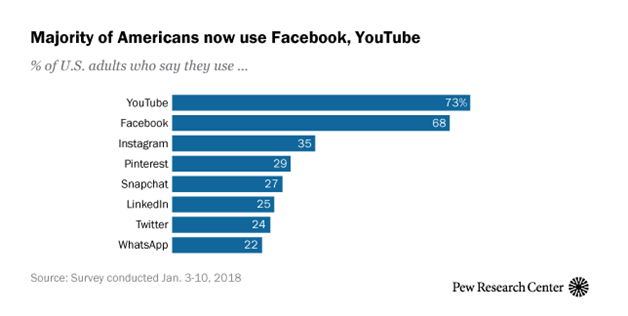
Source: http://www.pewinternet.org/2018/03/01/social-media-use-in-2018/
What Is the Matter Exactly?
There are many ways in which technology can affect us. And when it comes to a healthy sleep, things take an interesting turn. You see, electronic devices are more than just a distraction before bed. They can influence our brain and shift our night rhythms, and many components are responsible for that. So, let’s take a closer look at them.
Blue Light
Blue light is emitted by the majority of modern electronic devices, including laptops, smartphones, computers, televisions, tablets, and even electronic book readers. It is the brightest and the strongest wavelength, which pierces through our photoreceptors intensely, alerting and stimulating the brain.
Now, 95% of the American population use some kind of electronic devices before bed. Consequently, all of these people are influenced by the blue light before sleep. But what does this result in?
First of all, blue light suppresses the brain’s melatonin production (the hormone that regulates people’s natural sleep-wake cycles). To put it simply, when using an electronic device before bed, your brain interprets the blue light as daylight and sends the signal to your body that it’s still early for sleep. As a result, your sleep cycle shifts and it takes you much more time to fall asleep.
Secondly, blue light keeps your brain more alert. This, again, means that you won’t be able to fall asleep that easily. When your brain thinks it’s still daytime, it is stimulated to function as usual during the day, keeping your body alert. This means, your body simply won’t feel like falling asleep, which will result in tossing and turning (and feeling like a zombie in the morning).
Want to know how to deal with this issue? Here are some simple solutions:
- Establish a curfew. Because electronic devices reduce sleep quality, it is recommended to stop using any gadgets at least 30 minutes prior to going to bed. One or two hours is even better.
- Use a blue light filter. This solution isn’t ideal since it will not turn your electronic device into a sleep-friendly gadget. However, at least this way the influence of your device will be diminished to some extent. There are many free apps that can change the color of your gadget’s screen. There are different filter options, including soft red and green light. And even though this solution isn’t perfect, it can still offer an improvement for your sleep regimen.
Sounds
According to the surveys, more than 20% of users do not silence their phones when going to bed. And you can probably imagine what this habit results in. Every notification, every vibration, and every little pop-up sound can wake you up during the night. This, consequently, makes your rest disrupted, your sleep cycles unstable, and you less rested.
 “It is estimated that 95% of people use their phones within one hour before going to sleep. Some catch up with their social media updates, others communicate with friends, and some spend this time reading important work-related emails. Whatever the case is, all of them get a lower sleep quality because of this habit.”
“It is estimated that 95% of people use their phones within one hour before going to sleep. Some catch up with their social media updates, others communicate with friends, and some spend this time reading important work-related emails. Whatever the case is, all of them get a lower sleep quality because of this habit.”
When your sleep is constantly interrupted, it isn’t restorative enough. You wake up tired and feel irritated. You may even find it hard to concentrate during the day, which might influence your performance at work or school.
And it gets worse:
Constant sound disturbances during the night can even increase the risk of developing a cardiovascular disease. Scary what one little device (like your phone) can do, right?
This might surprise you, but we are actually wired to be more responsive to our phone sounds than to the outside noises. We spend all day checking our phones and reacting to the notification sounds. That’s why we may ignore the outside disturbances (like traffic noises, for example) during the night but wake up to the notification sounds.
So, how do you deal with such an issue? It’s simple:
Silence your cell phone before going to bed.
You might even try to keep it in the other room to avoid the temptation of checking it before bed. However, if your phone is your alarm, at least silence the notifications. It is also helpful to turn the data off so that you won’t be disturbed by social media messages and alerts.
Excessive Stimulation and Alertness
More than 40% of teenagers check their phones multiple times a night. Adults do that too, but the numbers are smaller. However, the outcome is the same in both cases: the brain is overstimulated and alerted. Which means, it doesn’t allow the body to fall asleep.

Source: https://www.statista.com/chart/2598/people-rarely-unplug-from-technology/
Here’s the deal:
When stimulated, our brain releases such hormones as cortisol and adrenaline. Cortisol is a stress hormone that gives your body an energy boost and keeps it tense. Adrenaline has a similar effect: it puts your body (and oftentimes mind) in a “fight or flight” mode. Again, this results in increased tension and energy levels. You might not feel like it, but your body is alerted. And, of course, it can’t relax and fall asleep in such a state.
“If you absolutely cannot stop using your phone in bed for whatever reason, at least try to minimize the influence of the blue light that the screen emits. How? Just use special filters. There are many apps that put a filter on your phone screen and turn the blue light into red, green, etc. This doesn’t make your phone 100% sleep-friendly but can at least decrease its influence on your sleep to some extent.”
Now, even the simplest, deceptively harmless actions can lead your brain to produce these hormones before bed. Such actions include:
- watching a dramatic, scary, or upsetting TV show;
- reading stressful work-related emails (or responding to them);
- playing an intense, stress-inducing video game;
- listening to energetic music;
- watching funny videos on YouTube;
- having a stressful conversation (or an argument) with a friend/partner;
- etc.
Trying to limit these activities before bed can really help you sleep better. Your body won’t receive any stimulation and will have a chance to relax and prepare for bed. And if you can’t go to sleep without checking your phone or watching a movie, try substituting these activities with something less alerting. For instance, you can read a book (but make sure to pick something relaxing and stay away from thrillers and detective stories), do yoga, flip through a magazine, take a bath, and so on. Allow yourself to enjoy something soothing instead of putting your body under stress.
Information Overload
In the 21st century, we have access to pretty much any information in the world. We can use the Internet anytime, anywhere. While almost everyone in America owns a cell phone, more than 40% of users also have a laptop or a tablet, and more than 30% have an eReader.
And while this is awesome (being able to search for any information you need), this privilege oftentimes plays a bad joke with us. When constantly being “attacked” by the information (especially in the evening), your brain is stimulated and doesn’t want to sleep. Such a cognitive stimulation can delay your circadian rhythms and make your sleep worse. And this, consequently, can influence your health, your academic life, and your performance at work.
To deal with this issue, here’s what you can do:
- If you are studying, stop this activity 2 hours prior to bed.
- Avoid watching TV or using your laptop before bed.
- Try to relax and calm your mind. Meditation helps immensely but it’s not for everyone and takes practice.
“Exposing yourself to natural light during the day is very beneficial. You see, your brain interprets the light as signals for what it should do. When you are exposed to light during the day and then limit it in the evening, the brain realizes that it’s already dark and time for sleep. Next thing you know, you become sleepy and ready to doze off.”
Addiction
According to the surveys, 1 in 3 people cannot give up their phone and would rather stop having sex. More than 50% of users check their phones first thing in the morning after waking up. Those can really be the signs of a serious addiction, so you can probably already see the picture.
Some other signs include:
- anxiety when your device’s battery is low;
- inability to cut down on the gadgets use;
- panic when the cell phone isn’t around;
- sleeping with a phone’
- spending more time communicating online than connecting with people in real life;
- using electronic devices when driving and refusing to ditch this habit;
- hearing cell phone’s buzzing or vibrating when it actually doesn’t.
Cell phone (or any other gadget) addiction results in insomnia, disrupted sleep, shifted cycles, and a lower sleep quality overall. It can even alter your brain, which, obviously, will influence both your sleep and your life outside the bedroom.
“Removing all the technology 1 or 2 hours before bed is the best way to protect yourself from its influence. Just leave your laptop or phone outside your bedroom. If you don’t feel sleepy yet, there are many other things you can do, for instance, read, meditate, journal, yoga, follow your beauty routine, and so on.”
Just like any other addiction, this type isn’t that easy to fight. However, there are certain things you can do in order to at least decrease the dependence on your electronics:
- Try a digital detox. This method may seem harsh and difficult to follow, but it’s quite effective. By giving up your electronics completely for a certain period of time, you can get a refreshing break from the information overload. This might make you look differently at the gadgets you’re using and even reduce the level of your dependence on them.
- Don’t allow any electronics in your bedroom. If you have a TV set in there, move it. Don’t take your phone with you when going to bed. Leave your laptop in the office or your living room. Simply make your bedroom a gadget-free zone. Soon, you will get used to such arrangements. Additionally, you will start sleeping better without all these distractions.
- Delete some of the apps and games on your phone. The less of them you have, the less time you are going to spend looking at the screen. It’s quite simple, isn’t it?
- Tyr to stick to a certain schedule. For instance, establish a rule of not using any electronics every day from 7 p.m. to 7 a.m.
- Try relaxation techniques or meditation to calm your mind and cope with the desire to constantly check your phone. Such exercises will allow you to be more in control over yourself and your dependence.
Wi-Fi Signal
You might not notice it, but the signal from your Wi-Fi router can also have an influence on your sleep. Just like the signal waves from your phone. And given the fact that more than 70% of users sleep next to their mobile devices, it looks like not many Americans can actually get enough rest during the night.
The thing is Wi-Fi signals emitted by the router and the phone somehow keep our brains a bit more alert, which means we don’t sleep that well. Those signals can even increase your stress levels. This means more tension and less relaxation, which leaves no chance for a restorative sleep to happen.
So, how do you deal with this issue? You need to limit those signals and their influence on you. Again, try to leave your phone outside the bedroom. And turning the Wi-Fi router off during the night is a good idea too.
“Both interactive and passive devices have an influence on your sleep quality. Interactive ones involve an actual interaction between them and a user. They include game consoles, smartphones, tablets, laptops, etc. As for the passive devices (for instance, a TV), even though they don’t actually require any actions from you, they can still delay your sleep and affect its quality.”
Does Gender Affect the Way Technology Influences Your Sleep?
Men and women are similar in so many ways, but not when it comes to sleep. In fact, it is known that women require more time to get rest during the night. Additionally, they are 40% more likely to suffer from insomnia than men are. Why, you may ask?
Have you heard a joke about a woman’s brain being like a browser, in which 124 tubs are opened? And there’s music playing in one of them, but you have no idea in which one exactly. Yes, that’s pretty much how women’s brains work. The thing is they tend to multitask much more than males. This, consequently, requires more energy and more sleep.
Just like that, women are usually more affected by technology (in terms of sleep). As they suffer from insomnia more often, they feel more tired and irritated in the mornings after not getting enough rest.
Of course, a healthy sleep hygiene is necessary for both males and females. It is also important to limit the device use before bed no matter who you are, man or woman.
“Did you know that sleep is responsible for your memory, learning abilities, and emotions? Therefore, the lack of it can make you unable to concentrate, inattentive, and unable to memorize the material well. So, when reading a lecture on your laptop before bed, you aren’t actually catching up on the material. You are depriving yourself of sleep, which will result in a worse academic performance.”
Does Age Affect the Way Technology Influences Your Sleep?
These days, electronic devices affect sleep quality across different demographics. It is hard to find a household that doesn’t have a TV and a bunch of other devices like cell phones or tablets. Obviously, every age group is influenced by modern-day technologies. To see the full picture, let’s take a closer look at the different age groups:
- Toddlers. Ideally, toddlers are supposed to get around 12-14 hours of sleep every day.
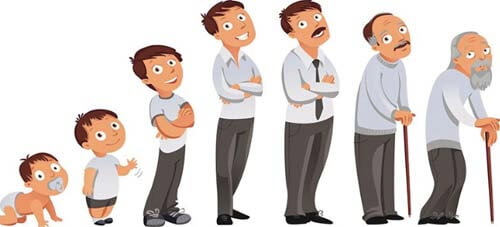 However, with so many distractions like TV, cartoons, and games, kids oftentimes don’t get enough rest. By using cell phones or tablets, kids are more likely to get shifted and disrupted sleep cycles. This results in a number of issues, and rather serious ones. Toddlers who use electronics a lot (especially in the evenings) get fewer hours of sleep. Their sleep quality is worse overall and their sleep is less restorative. As a result, toddlers are more likely to get sick (since their immune system becomes weaker with insufficient sleep), experience mood swings, and suffer from memory problems.
However, with so many distractions like TV, cartoons, and games, kids oftentimes don’t get enough rest. By using cell phones or tablets, kids are more likely to get shifted and disrupted sleep cycles. This results in a number of issues, and rather serious ones. Toddlers who use electronics a lot (especially in the evenings) get fewer hours of sleep. Their sleep quality is worse overall and their sleep is less restorative. As a result, toddlers are more likely to get sick (since their immune system becomes weaker with insufficient sleep), experience mood swings, and suffer from memory problems. - Schoolkids. The same happens to schoolchildren. When using electronic devices before bed, their brains become more alert and take much more time to fall asleep. Their internal clock shifts, which results in a lower sleep quality. And when schoolkids are sleep deprived, they can suffer from memory issues and show a poor academic performance. Their health is affected as well (some possible side effects can include a weak immune system, short attention span, depression, headaches, and so on).
- Teens. Teenagers regularly use their phones during the night, thus disrupting their own sleep. As a result, they feel more tired in the morning and during lessons, find it hard to concentrate, get bad grades, become more irritable, suffer from the constant feeling of fatigue, etc. The list of potential symptoms is quite long and can vary depending on each individual case, but the ones mentioned above are most common.
- Adults. As we already know, the technology use before bed affects adults as well. Not only may they suffer from sleep deprivation but can also find it hard to focus at work, become more stressed out, and even experience some unpleasant situations with their colleagues because of their mood swings.
“Younger users, students, and teenagers tend to use their devices in bed more often than people over 29 years.”
Not That Bad: Some Technology Can Help You Sleep Better
While electronic devices can interfere with your sleep regimen, some of them can actually be beneficial and may even help you establish a healthy sleep hygiene. There aren’t many “sleep-friendly” gadgets, but maybe one of them can improve the quality of your rest:
- White noise machines. Such devices can offer a lot of benefits. They help people fall asleep, calm their thoughts, relax, soothe themselves, and not get distracted by the unwanted thoughts. Additionally, white noise machines can block the outside disturbances (like traffic sounds, for example).
- Sleep trackers. Using a sleep tracker can help you notice and study your sleep patterns, set a perfect alarm (which will tune to your sleep cycles), fix the sleeping issues that you have, set an ideal schedule for yourself, and so on.
- Nature sound and meditation apps. Listening to nature sounds helps us relax and fall asleep easier. Meditation does the same thing, plus allows us to calm our thoughts. As a result, we can sleep better, enjoy an increased focus, be more productive, and benefit from a more restorative sleep.
“Since the blue light messes up our sleep, we can fight it using a different kind of light – the natural one. It’s very simple, actually: to put your inner clock back on track, you need to send light signals to your brain. When going to bed, make the room dark, so that your brain could understand that it’s already dark outside and time for sleep. However, don’t use dark and thick curtains. Allow the morning light to enter your room. Your brain will receive this signal and wake you up.”
Conclusion
You can see now what a huge influence your good old electronics have on your life (and sleep in particular). Thankfully, there are many ways to protect yourself from that influence.
Remember:
You are the one in control.
Your device is simply a helpful tool, not the one in charge. So, take things back under control and enjoy your restful, restorative sleep!
Additional Resources
- https://www.ncbi.nlm.nih.gov/pmc/articles/PMC4734149/ – A study on the effects of blue light on humans’ eye physiology and circadian rhythms by Gianluca Tosini (Department of Pharmacology and Toxicology and Neuroscience Institute, Morehouse School of Medicine, Atlanta, GA), Ian Ferguson (College of Engineering and Computing, Missouri University of Science and Technology, Rolla, MS), and Kazuo Tsubota (Department of Ophthalmology, Keio University School of Medicine, Tokyo, Japan).
- https://www.ncbi.nlm.nih.gov/pmc/articles/PMC2831986/ – More information on the effects of the blue light on human health. A study by David C. Holzman.
- http://healthysleep.med.harvard.edu/healthy/science/what/sleep-patterns-rem-nrem – More about the natural sleep patterns (A resource from the Division of Sleep Medicine at Harvard Medical School.
- https://blogs.scientificamerican.com/a-blog-around-the-clock/everything-you-always-wanted-to-know-about-sleep-but-were-too-afraid-to-ask/ – More on individual sleep patterns in humans.
- https://www.livescience.com/59872-stages-of-sleep.html – The explanation of human sleep stages by Cari Nierenberg.
- https://en.wikipedia.org/wiki/Biphasic_and_polyphasic_sleep – Non-traditional sleeping patterns people practice.
- https://www.ncbi.nlm.nih.gov/pmc/articles/PMC3194102/ – A study by Daria J. Kuss and Mark D. Griffiths on online networking and addiction (International Gaming Research Unit, Psychology Division, Nottingham Trent University).
- https://childmind.org/article/is-internet-addiction-real/ – More info on Internet addiction by the Child Mind Institute.
- http://healthysleep.med.harvard.edu/healthy/science/how/external-factors – Potential external factors that can influence our sleep quality. A resource from the Division of Sleep Medicine at Harvard Medical School.

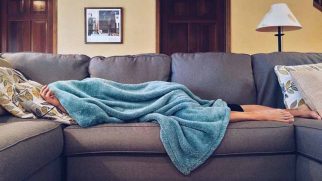
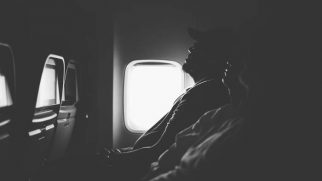

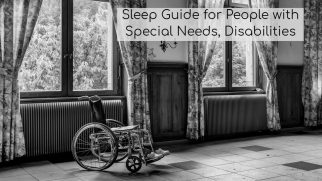
No Comments